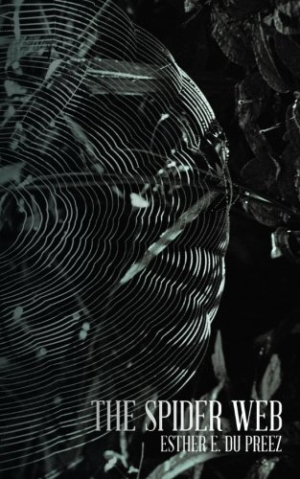The Spider Web
Intriguing characters make The Spider Web an attention-grabbing read.
The Spider Web is a multifaceted story of human struggle, international drug smuggling, and human trafficking. When an oncologist develops a top-secret anticancer drug, not only does the mafia pursue him, but members of his family get caught in the criminal crossfire as well. Amid tense and action-packed scenes, Esther E. Du Preez’s debut thriller incorporates themes based on relationships, hardship, and the desire of two girls to find their birth mother.
Du Preez has created a cast of ordinary yet interesting people. While some accomplish extraordinary feats, most unwittingly find themselves in the midst of criminal activity. The protagonists includes Annah, a sensitive, naive, and complaisant woman who is married to narcissistic oncologist Vernon, and two adventurous and heroic young women who appear much later in the story: Mitch, a high-ranking detective, and Yunni, a paramedic. Some of the antagonists have names, and specific ones pop up intermittently throughout the book, but many of the gang members are lumped together into a sinister collective. Outside of the criminal scene, the only menacing character whose portrayal is quite defined is that of Vernon.
The narrative, which is set mainly between South Africa and England, covers a time period of more than two decades—from the time of Nelson Mandela’s release from prison in 1990 to the present. Du Preez focuses primarily on relationships, such as the natural bond that builds between Mitch and Yunni. The author also does a stellar job interweaving random moments of adversity and the mafia’s continual hunt for Vernon’s priceless ligand into his and Annah’s unstable marriage. At times, the novel seems to surge from one devastating scene to the next, but Du Preez balances these moments by resolving misfortunes and producing scenes of happiness and repose.
While the plot is unique, Du Preez integrates a plethora of factual and historical information that is helpful but sometimes excessive, especially when used in conversational segments. Although very interesting, the large blocks of information not only detract from the general flow of the story, but they also create confusion. Sections are suddenly choppy and offer no segues into subsequent scenes, such as when a particularly hideous death scene is abruptly followed by almost two pages of information on Japan.
Equally confusing is the novel’s title. Other than an aptly designed book cover and a few passing references to spider webs, there appears to be no connection between the title and the narrative. Aside from its peculiarities, this debut novel is one of a kind.
Reviewed by
Anita Lock
Disclosure: This article is not an endorsement, but a review. The publisher of this book provided free copies of the book and paid a small fee to have their book reviewed by a professional reviewer. Foreword Reviews and Clarion Reviews make no guarantee that the publisher will receive a positive review. Foreword Magazine, Inc. is disclosing this in accordance with the Federal Trade Commission’s 16 CFR, Part 255.

